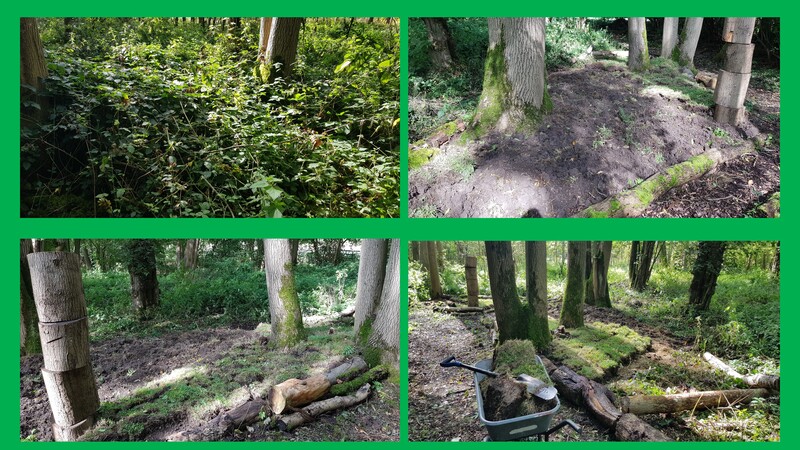
FRIDAY JULY 1 BLOG
Its day 1 of #creative Exploring Creative Ecologies and I'm going to use this blog as a way of gathering my thoughts about each day's sharings. I've done my prep.. designed my ecology for social learning - hopefully with enough resources to stimulate thinking and plenty of spaces and affordances for other people to take the process in directions that they find interesting and meaningful. I've promoted the event through Google+, mail lists, twitter and linked in and I made my first post at 8am. You never know when you start these things whether anyone will be interested but its 2pm and already 11 people have made contributions so my imagined minimum target of 10 participants has been exceeded and I can relax. Furthermore, I have already had some interesting conversations with my son, on home from university, about creativity over lunch. So I'm feeling optimistic.
The purpose of this #creativeHE inquiry is to explore the idea that creativity emerges from the ecologies we create to learn, develop and achieve something we value. I prepared a background paper to introduce the idea (1). During the process participants are being encouraged to create a narrative describing an experience when they were creative and use the framework of a learning ecology I have developed to test the idea that creativity is an ecological phenomenon defined by Carl Rogers as - 'the emergence in action of a novel relational product growing out of the uniqueness of the individual on the one hand, and the materials, events, people, or circumstances of his/her life',(2) The intention is to curate what is learnt through a special issue of Creative Academic Magazine.
Two important questions underlying this inquiry are
1) Does the model for a learning ecology summarised in this paper provide an adequate framework for understanding the way creativity emerges from the circumstances of our life? How might the model be improved?
2) Is the ecological definition of creativity proposed by Rogers (1961) consistent with stories shared by participants?
Sources:
1) Jackson N J (2016) Background Paper #creativeHE 'Exploring Creative Ecologies'
http://www.creativeacademic.uk/creativehe.html
2) Rogers, C.R., (1961) On becoming a person. Boston: Houghton Mifflin
Its day 1 of #creative Exploring Creative Ecologies and I'm going to use this blog as a way of gathering my thoughts about each day's sharings. I've done my prep.. designed my ecology for social learning - hopefully with enough resources to stimulate thinking and plenty of spaces and affordances for other people to take the process in directions that they find interesting and meaningful. I've promoted the event through Google+, mail lists, twitter and linked in and I made my first post at 8am. You never know when you start these things whether anyone will be interested but its 2pm and already 11 people have made contributions so my imagined minimum target of 10 participants has been exceeded and I can relax. Furthermore, I have already had some interesting conversations with my son, on home from university, about creativity over lunch. So I'm feeling optimistic.
The purpose of this #creativeHE inquiry is to explore the idea that creativity emerges from the ecologies we create to learn, develop and achieve something we value. I prepared a background paper to introduce the idea (1). During the process participants are being encouraged to create a narrative describing an experience when they were creative and use the framework of a learning ecology I have developed to test the idea that creativity is an ecological phenomenon defined by Carl Rogers as - 'the emergence in action of a novel relational product growing out of the uniqueness of the individual on the one hand, and the materials, events, people, or circumstances of his/her life',(2) The intention is to curate what is learnt through a special issue of Creative Academic Magazine.
Two important questions underlying this inquiry are
1) Does the model for a learning ecology summarised in this paper provide an adequate framework for understanding the way creativity emerges from the circumstances of our life? How might the model be improved?
2) Is the ecological definition of creativity proposed by Rogers (1961) consistent with stories shared by participants?
Sources:
1) Jackson N J (2016) Background Paper #creativeHE 'Exploring Creative Ecologies'
http://www.creativeacademic.uk/creativehe.html
2) Rogers, C.R., (1961) On becoming a person. Boston: Houghton Mifflin
 RSS Feed
RSS Feed